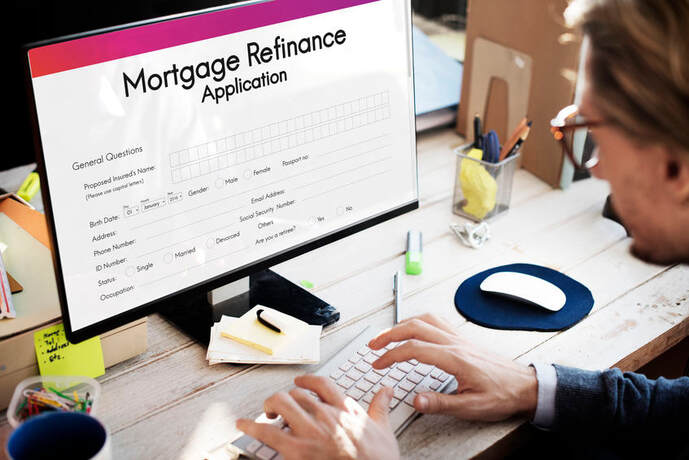
A property valuation and a property appraisal are two different ways to determine the value of your home. This article will help you understand the differences between these two services and who you should contact to provide each service.
Reasons for a property valuation or appraisal
Firstly, let's explore the different reasons why you would want an appraisal or valuation.
Many people in New Zealand like to get a valuation or appraisal because:
>> SEARCH FOR A TOP AGENT TO SELL YOUR PROPERY
Renovations
Residential property owners often like to renovate their property for several reasons. Usually, there may be a change of circumstances that require additional living spaces, such as new family members and the need for one (or a number) of additional bedrooms or bathrooms. A valuer would assess the return on investment for adding on the extra facilities.
Reasons for a property valuation or appraisal
Firstly, let's explore the different reasons why you would want an appraisal or valuation.
Many people in New Zealand like to get a valuation or appraisal because:
>> SEARCH FOR A TOP AGENT TO SELL YOUR PROPERY
Renovations
Residential property owners often like to renovate their property for several reasons. Usually, there may be a change of circumstances that require additional living spaces, such as new family members and the need for one (or a number) of additional bedrooms or bathrooms. A valuer would assess the return on investment for adding on the extra facilities.
Refinancing
Funding for other financial plans such as refinancing, consolidation loans, or new mortgage requires verification that the promised collateral is worth what it should be.
Tax and insurance
Annual reassessment is required for specific tax calculations, rates, transfer duty calculations, and insurance premiums.
Funding for other financial plans such as refinancing, consolidation loans, or new mortgage requires verification that the promised collateral is worth what it should be.
Tax and insurance
Annual reassessment is required for specific tax calculations, rates, transfer duty calculations, and insurance premiums.
Investment opportunity
Sometimes it is to upgrade or make improvements; however, before upgrading, prudent investors would have a valuer provide a valuation on their property to ensure they will receive a return on this upgrade or renovation. It helps to know the value of similar properties in your district with similar features is selling.
Sometimes it is to upgrade or make improvements; however, before upgrading, prudent investors would have a valuer provide a valuation on their property to ensure they will receive a return on this upgrade or renovation. It helps to know the value of similar properties in your district with similar features is selling.

Legal reasons
Perhaps there is uncertainty or litigation involved with property ownership and may require legally binding advice to determine the value.
Capital gains
The property value has changed dramatically; potentially, the last valuation was done many years ago, and actual current values vary significantly from what's listed on comparable properties nearby.
Each activity listed above requires either an appraisal or evaluation depending on the outcome you are trying to achieve. Let's take a look at the differences between property valuation versus property appraisal.
What is an appraisal?
Appraisals are a type of analysis that provides you with an indication of the property's market value. An appraisal is used to help you as the seller determine where your home stands in the market and what its possible selling price may be.
>> FIND A TOP AGENT FOR AN APPRRAISAL
An appraisal is performed by a real estate professional for free. The actual market value figure is arrived at by the real estate agent's own perception of the market you are selling in conjunction with their evaluation of your property, site, house position, and construction quality.
The process of obtaining an appraisal on your home is typically quicker than a valuation, and there is no formal procedure to complete. Still, it's vital to remember that an appraisal should only ever be considered as a guideline.
Always select a local real estate agent when getting an appraisal or market valuation on your address since they will have a greater understanding of the market in your region. In most situations, an assessment will not cost you anything, but you should inquire about any fees before having it done just to be sure.
What is a valuation?
When a property's final value is required, most often after the sale of an asset, a valuation is done. A formal property valuation may only be done by a professional valuer who has received all necessary training instead of an informal appraisal that any real estate agent can complete.
A professional property appraisal is a third-party calculation of the value of a home that considers things such as the building size, the land, the number of bedrooms and bathrooms, building material quality, district zoning of the house, features of the house, and includes the condition of the property.
A property appraisal is a service provided by realtors, which entails looking at comparable homes in your region and recent property sales to generate a conservative estimate of the value of your home.
A formal property valuation, unlike an appraisal, is a more thorough process that necessitates the services of a professional. It will generally set you back between $1,800 and $3,000, depending on the circumstances.
Do you need an appraisal or valuation? An appraiser will estimate value based on recent sales price, while a valuer provides information about current prices and trends in real estate markets across New Zealand. Fill out our form today for your free property valuation - we guarantee that one of our professionals will save you time, money, and stress!
Disclaimer: This is NOT real estate advice. Please talk with your local professional or seek your own professional legal or financial advice. This is of a general nature only.
Perhaps there is uncertainty or litigation involved with property ownership and may require legally binding advice to determine the value.
Capital gains
The property value has changed dramatically; potentially, the last valuation was done many years ago, and actual current values vary significantly from what's listed on comparable properties nearby.
Each activity listed above requires either an appraisal or evaluation depending on the outcome you are trying to achieve. Let's take a look at the differences between property valuation versus property appraisal.
What is an appraisal?
Appraisals are a type of analysis that provides you with an indication of the property's market value. An appraisal is used to help you as the seller determine where your home stands in the market and what its possible selling price may be.
>> FIND A TOP AGENT FOR AN APPRRAISAL
An appraisal is performed by a real estate professional for free. The actual market value figure is arrived at by the real estate agent's own perception of the market you are selling in conjunction with their evaluation of your property, site, house position, and construction quality.
The process of obtaining an appraisal on your home is typically quicker than a valuation, and there is no formal procedure to complete. Still, it's vital to remember that an appraisal should only ever be considered as a guideline.
Always select a local real estate agent when getting an appraisal or market valuation on your address since they will have a greater understanding of the market in your region. In most situations, an assessment will not cost you anything, but you should inquire about any fees before having it done just to be sure.
What is a valuation?
When a property's final value is required, most often after the sale of an asset, a valuation is done. A formal property valuation may only be done by a professional valuer who has received all necessary training instead of an informal appraisal that any real estate agent can complete.
A professional property appraisal is a third-party calculation of the value of a home that considers things such as the building size, the land, the number of bedrooms and bathrooms, building material quality, district zoning of the house, features of the house, and includes the condition of the property.
A property appraisal is a service provided by realtors, which entails looking at comparable homes in your region and recent property sales to generate a conservative estimate of the value of your home.
A formal property valuation, unlike an appraisal, is a more thorough process that necessitates the services of a professional. It will generally set you back between $1,800 and $3,000, depending on the circumstances.
Do you need an appraisal or valuation? An appraiser will estimate value based on recent sales price, while a valuer provides information about current prices and trends in real estate markets across New Zealand. Fill out our form today for your free property valuation - we guarantee that one of our professionals will save you time, money, and stress!
Disclaimer: This is NOT real estate advice. Please talk with your local professional or seek your own professional legal or financial advice. This is of a general nature only.






 RSS Feed
RSS Feed